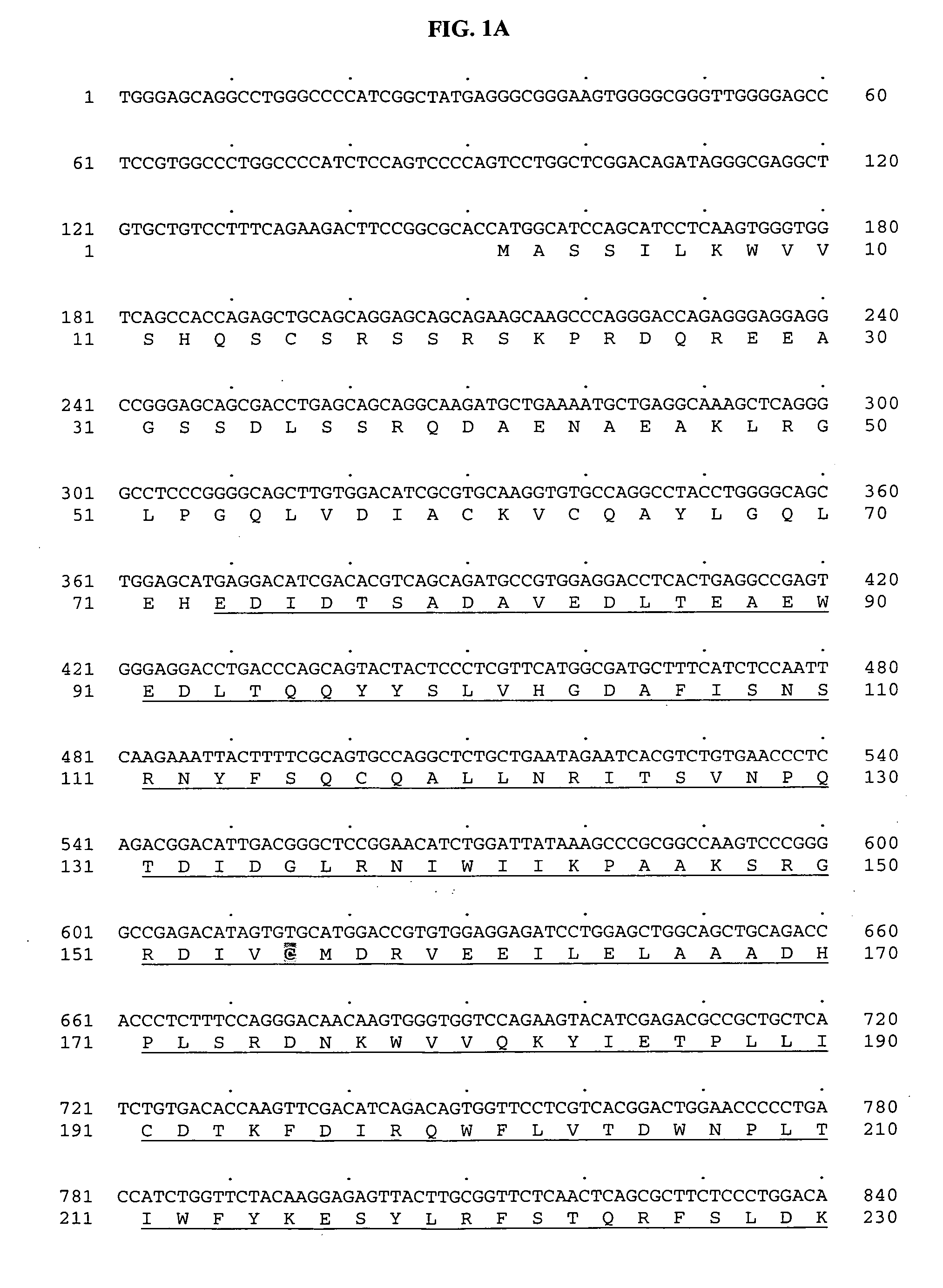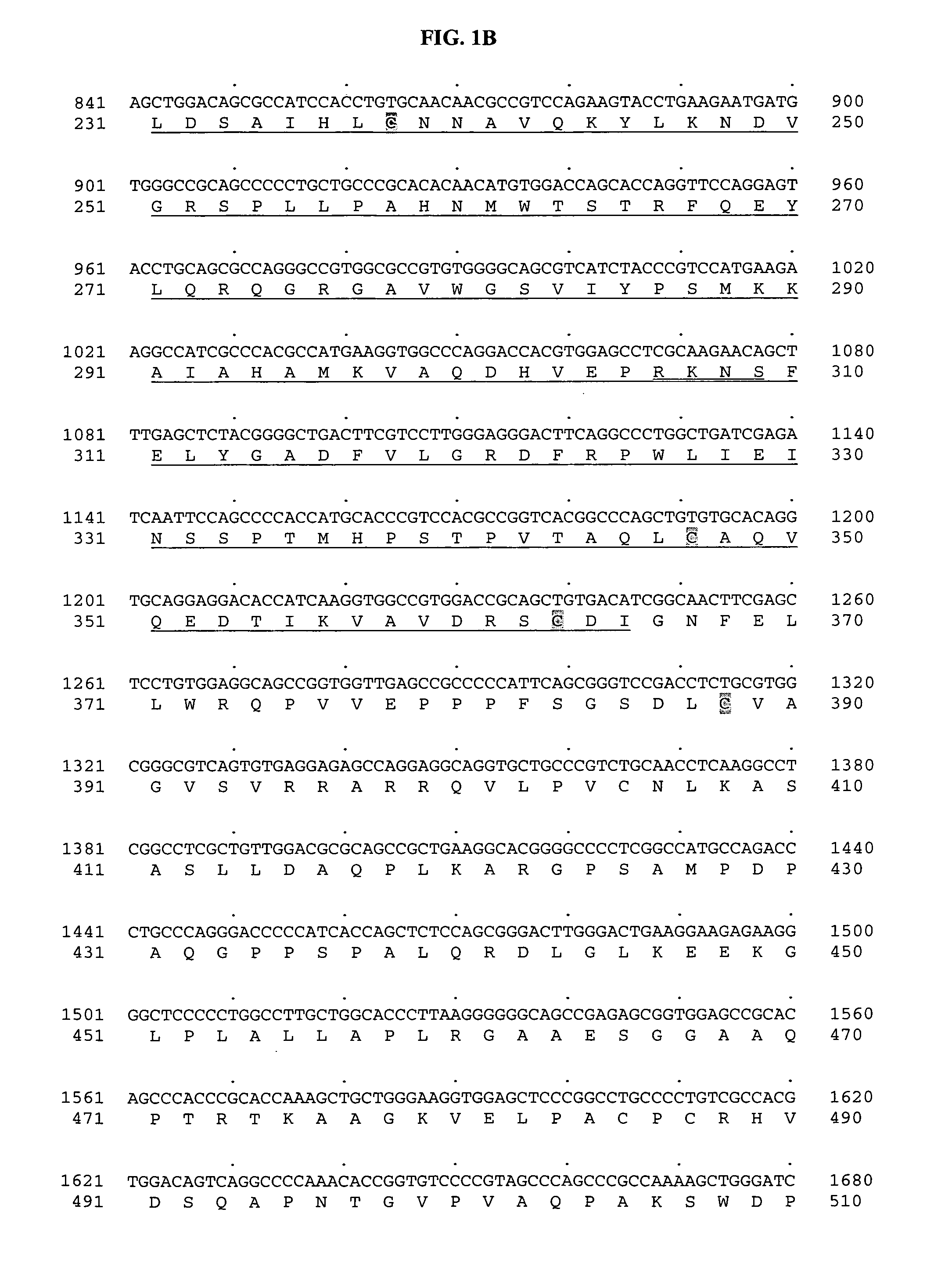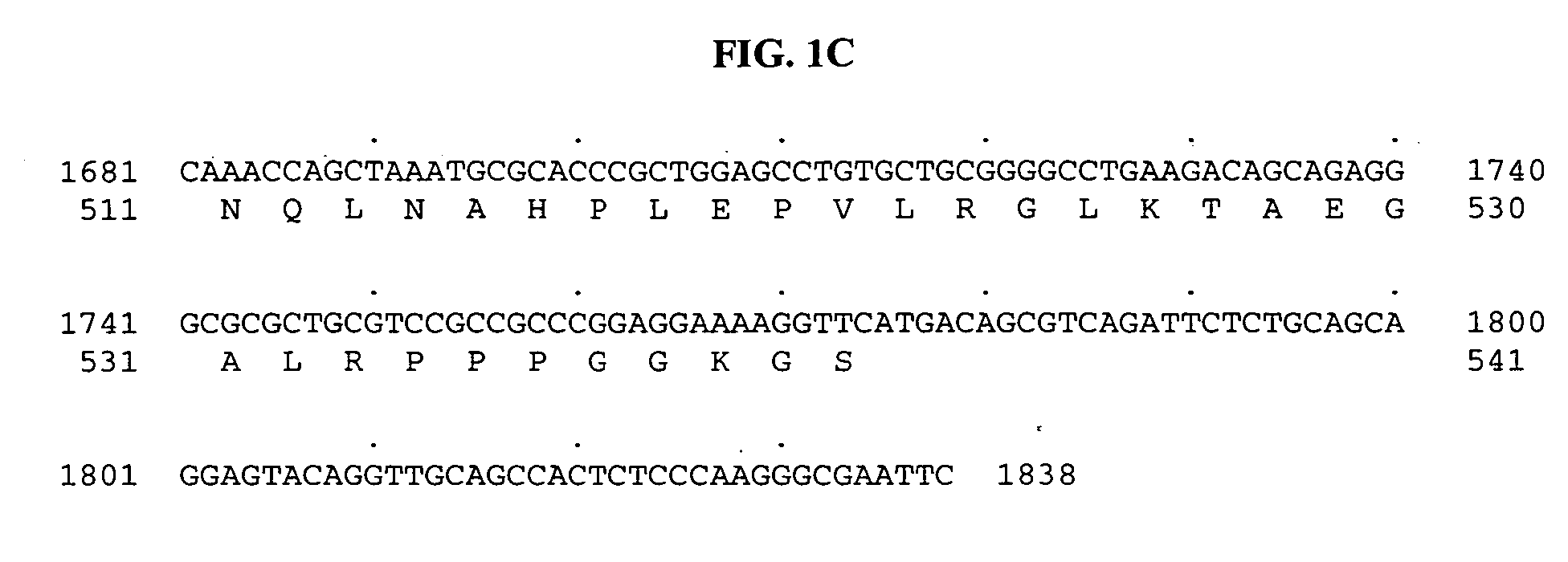Polynucleotides encoding a novel testis-specific tubulin tyrosine-ligase-like protein, BGS42
a polypeptide, testis-specific technology, applied in the direction of peptides, enzymology, fused cells, etc., can solve the problem of unbalanced activity of tubulin-carboxypeptidas
- Summary
- Abstract
- Description
- Claims
- Application Information
AI Technical Summary
Benefits of technology
Problems solved by technology
Method used
Image
Examples
example 1
Bioinformatics Analysis
[0720] Tubulin tyrosine ligase domain sequences from several different species were used as probes to search the human genomic sequence database. The search program used was gapped BLAST (Altschul, S F, et al. Nucleic Acids Res 25:3389-3402, 1997.). The top genomic exon hits from the BLAST results were searched back against the non-redundant protein and patent sequence databases. From this analysis, exons encoding potential novel tubulin tyrosine ligases were identified based on sequence homology and their most similar protein sequence were then used as a template to predict more exons using the GENEWISEDB program (Birney and Durbin, 2000). The final predicted exons were assembled and full-length clones of genes were obtained using the predicted exon sequences. With these analyses, a predicted full-length sequence of a novel human secreted protein, named BGS-42 was identified directly from a piece of human genomic sequence (Genbank accession number: AL022327)...
example 2
Method of Constructing a Size Fractionated Brain and Tests cDNA Library
[0723] Poly A+ RNA from Clontech is treated with DNase I to remove genomic DNA contamination. The RNA is converted into double stranded cDNA using the SuperScript™ Plasmid System for cDNA Synthesis and Plasmid Cloning (Life Technologies). The cDNA is size fractionated on a TransGenomics HPLC size exclusion column (TosoHass) with dimensions of 7.8 mm×30 cm and a particle size of 10 μm. Tris buffered saline is used as the mobile phase, and the column is run at a flow rate of 0.5 ml / min. The system is calibrated using a 1 kb ladder to determine which fractions are to be pooled to obtain the largest cDNA library. Generally, fractions that eluted in the range of 12 to 15 minutes are used. The cDNA is precipitated, concentrated and then ligated into the Sal I / Not I sites in pSPORT. Following electroporation of the cDNA into DH12S, DNA from the resulting colonies is prepared and subjected to Sal I / Not I restriction enz...
example 3
Method of Converting Double Stranded cDNA Libraries into Single Stranded Circular Forms
I. Preparation of Culture.
[0724] LB medium (200 mL+400 ul carb) is inoculated with 0.2 to 1 ml of thawed cDNA library. The culture is incubated, shaking at 250 rpm at 37° C. for 45 min. The optical density of the culture is measured. The OD600 is preferably between 0.025 and 0.040. One mL M13K07 helper phage is added to the culture and grown for 2 hours. At that time, 500 uL Kanamycin (30 mg / mL) is added and incubation continued for 15-18 hours.
II. Preparation of Cells for Precipitation.
[0725] Cultures are poured into six 50 mL tubes. Cells are centrifuged at 10000 rpm in an HB-6 rotor for 15 minutes at 4° C. The supernatant is retrieved and cells discarded. The supernatant is filtered through a 0.2 um filter. DNase I (12000 units from Gibco) is added and incubated at room temperature for 90 minutes.
III. PEG Precipitation of DNA.
[0726] Fifty mL of ice-cold 40% PEG 8000, 2.5 M NaCl, 10 mM ...
PUM
 Login to View More
Login to View More Abstract
Description
Claims
Application Information
 Login to View More
Login to View More - R&D
- Intellectual Property
- Life Sciences
- Materials
- Tech Scout
- Unparalleled Data Quality
- Higher Quality Content
- 60% Fewer Hallucinations
Browse by: Latest US Patents, China's latest patents, Technical Efficacy Thesaurus, Application Domain, Technology Topic, Popular Technical Reports.
© 2025 PatSnap. All rights reserved.Legal|Privacy policy|Modern Slavery Act Transparency Statement|Sitemap|About US| Contact US: help@patsnap.com



